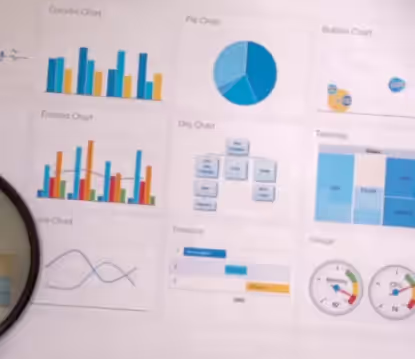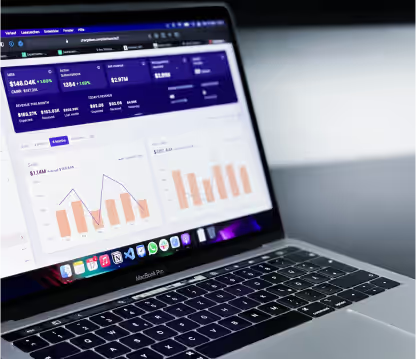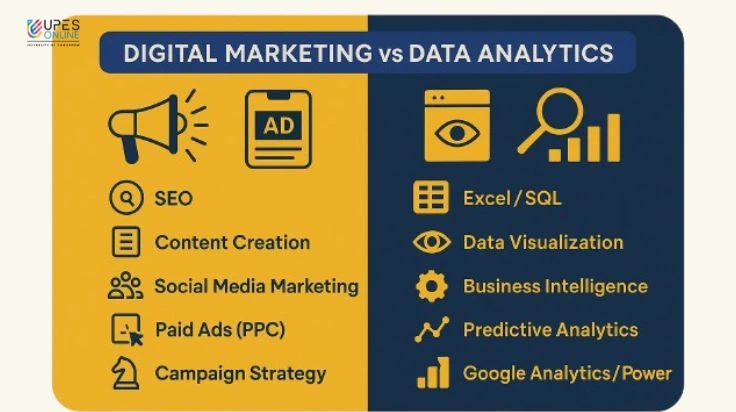Data Analytics: Turning Data Into Insights and Action

Data analytics has become a buzzword in the business world, with companies of all sizes collecting data on customers, sales, and operations. But, gathering data is just the beginning. To truly harness the power of data, businesses must turn that data into insights and action and use it in critical business situation.
Data analytics is a field that has exploded in popularity in recent years, as companies and organisations have come to realise the power of data in driving business decisions. So, what exactly is data analytics, and how does it work?
What is Data Analytics?
At its core, data analytics is the process of examining large sets of data to uncover patterns, correlations, and other insights. This involves collecting data from various sources, such as databases, social media platforms, and website analytics tools, and using statistical and machine learning techniques to analyse the data and extract meaningful insights.
But it is not just about uncovering insights – it’s also about taking action based on those insights. After all, what good is an insight if you don’t act on it? That’s why data analytics often involves not just analysing data, but also creating actionable plans and strategies based on the insights gained. That’s where an MBA in Business Analytics can be valuable. The program combines business management principles with advanced training in data analytics, preparing graduates to lead data-driven businesses.
At UPES Online, students can earn an MBA in Business Analytics entirely online. The program is designed to be flexible and accessible, allowing students to complete coursework on their own schedule. Students learn from industry experts and gain hands-on experience using the latest tools and technologies for data analysis.
How Data Analytics Can Come Into Use
One way to take action on data is to optimise operations. For example, a logistics company might use data analytics to identify the most efficient routes for their trucks, reducing fuel costs and improving delivery times. Similarly, a retailer might use data to identify which products are selling well and adjust their inventory accordingly, reducing waste and improving profitability.
Another way that businesses can use data analytics to drive action is by improving customer experience. By analysing customer data, businesses can identify pain points and take steps to address them. For example, a bank might use data to identify areas where their customers are experiencing delays in the loan approval process, allowing them to streamline their operations and improve the customer experience.
Finally, businesses can use data analytics to identify new growth opportunities. By analysing market data and customer trends, businesses can identify areas where they can expand their offerings or optimise their product to better meet customer needs. For example, a software (SAAS) company might use analytics to identify a gap in the market and develop a new product to address this need.
Industry Insights:
India has experienced unmatched growth in data analytics in the past few years. This is mainly because of the exponential rise of internet users. According to the World Bank, penetration of the internet doubled from 20% to 41% in 2018-19. It is also expected that 900 million users will be added by 2025.
The demand for professionals with expertise in data analytics is expected to continue growing in the coming years. According to a report by the World Economic Forum, data analysts and scientists are among the top emerging jobs in the world. By 2025, the report estimates that there will be 2.7 million job postings for data and analytics roles in the United States alone.
In summary, data analytics is a critical tool for businesses that want to stay competitive in today’s data-driven world. By turning data into insights and action, businesses can make better decisions and improve their bottom line. An MBA in Business Analytics from UPES CCE provides the training and education needed to lead data-driven businesses. Graduates are prepared to take on a variety of roles in the field of analytics and make a real impact in their careers.
UPES Online Admission Enquiry
Recommended Courses

Artificial Intelligence and Machine Learning
MCA in Artificial Intelligence and Machine Learning
View Program



Latest Blogs

Digital Marketing vs Data Analytics: Which Career Should You Choose?
Battle of skills: Digital Marketing vs Data Analytics—compare 2025 salaries, skills & job roles. Expert tips to choose your future career path!
Read MoreJun 15, 2025 I 12 mins
Why Should I Choose UPES Online? 10 Reasons Why
Explore why UPES Online stands out in online education. Learn about flexible learning, UGC-approved degrees, expert faculty & credible online programs. Enroll now!
Read MoreAug 21, 2025 I 5 min
Can Distance Learning Fully Replace Traditional MBA Education? Challenges & Limitations
Find out if distance learning can truly replace a traditional MBA. Learn key challenges, limitations, expert opinion & insights.
Read MoreSep 2, 2025 I 4 mins
Online MBA Capstone Projects and the Importance They Hold
Know the importance of online MBA capstone projects. Learn how they build real-world skills, boost career opportunities, & add industry value.
Read MoreSep 7, 2025 I 5 mins
UPES Online MBA vs Other Top Universities: Why Students Prefer UPES
Compare UPES Online MBA with other top universities. Know why students prefer UPES online over others. Check fee, flexibility, faculty, ROI, & career scope.
Read MoreOct 1, 2025 I 7 mins






